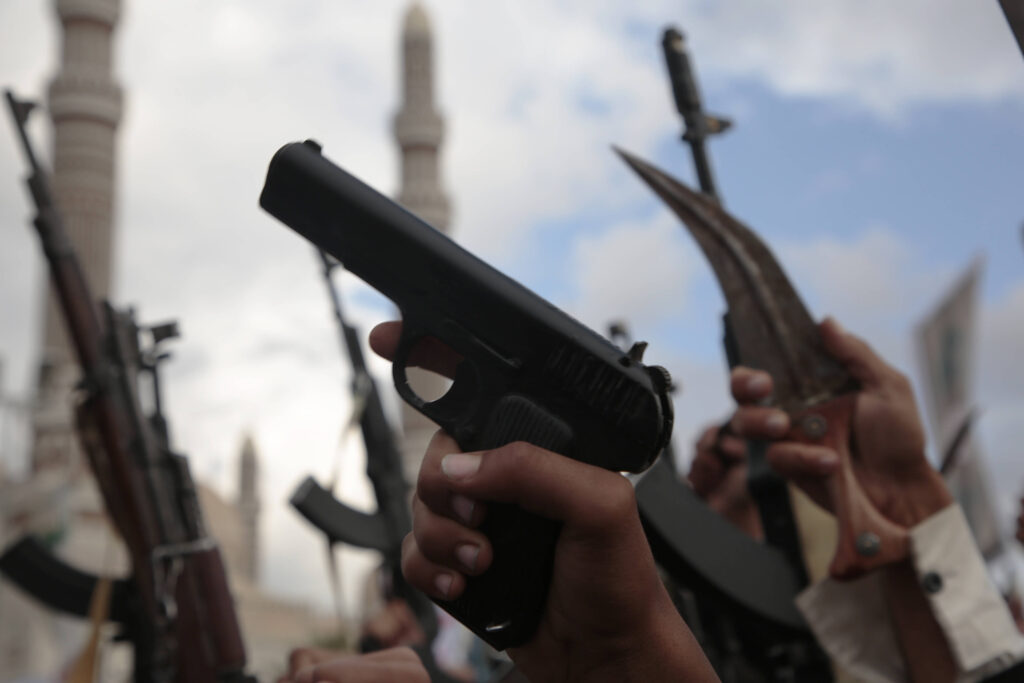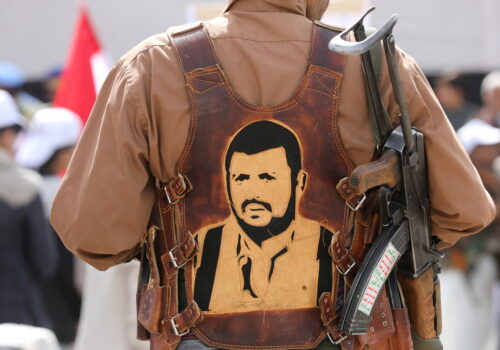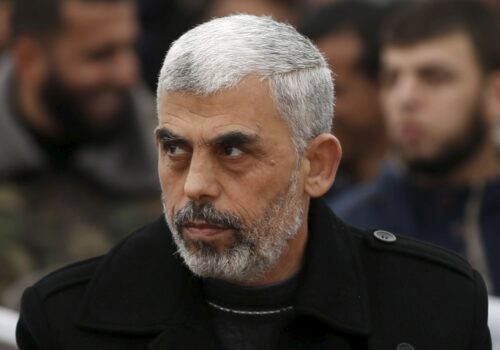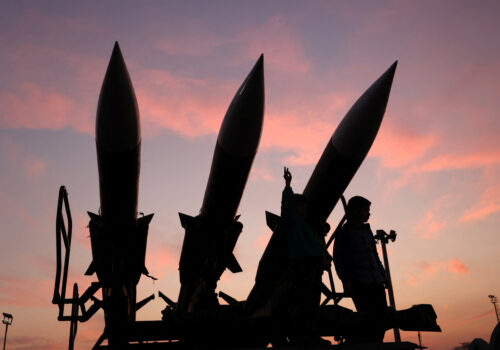New reports reveal that the Russian armed forces have managed to recruit hundreds of Yemeni men into their ranks thanks to their growing relationship with Yemen’s Houthi rebels. The recruits, who were promised high salaries and even Russian citizenship for jobs in engineering and security, were transferred to Russia through a Houthi-linked company and eventually forced into the Russian army and sent to fight on the front lines. The effort would likely benefit the Houthis financially and give Yemeni men in areas under their control training under the Russian military. Their recruitment is part of a larger Russian effort to use migrant recruits—from Yemen as well as Nepal, India, and North Korea—to offset heavy battlefield losses.
However, the recruitment of Yemeni fighters is only one element of the burgeoning relationship between the Houthis and Russia, which has taken on greater significance since the October 7, 2023, Hamas assault on Israel. The Houthis, long viewed as an Iranian pet project compared to its other more formidable proxies, have asserted themselves as a critical element of Iran’s “Axis of Resistance,” a coalition of Iran-backed groups opposing Western influence in the Middle East. Significantly, several months ago, reports surfaced that Iran was brokering a potential agreement whereby Russia would send advanced weapons, namely P-800 Oniks anti-ship missiles, to the Houthis. While there is no evidence that such a transfer has happened yet, US Special Envoy for Yemen Timothy Lenderking recently confirmed that Russia is actively pursuing contacts with the Houthis and discussing a potential weapons transfer. In October, there were reports that Moscow plans to provide the rebels with a shipment of small arms valued at ten million dollars. Shortly after claims of such a weapons transfer began circulating, other reports claimed that the Kremlin had also been providing the group with intelligence, including satellite data, for its ongoing campaign against maritime traffic in the Red Sea and surrounding waterways.
For Moscow, cooperation with the Houthis offers several benefits beyond simply offsetting battlefield losses in Ukraine.
The Houthis are ascending to a more prominent role within Iran’s network of allies and proxies. This is due to their successful strikes on international maritime shipping and Israeli territory, as well as to a diminished Hezbollah and Hamas after successive Israeli military operations on senior leadership and critical infrastructure. Thus, the relationship between the Houthis and Russia should be viewed as one aspect of a larger strategic effort among US adversaries—Russia, Iran, North Korea, and China—to consolidate their alliances and challenge the United States and its allies in the region.
For Moscow, cooperation with the Houthis offers several benefits beyond simply offsetting battlefield losses in Ukraine. First, by equipping the Houthis with weapons and intelligence, Russia is encouraging destabilizing actions in the Red Sea and surrounding waterways. Moscow sees the Houthis’ maritime campaign as an opportunity to exert pressure on Western commercial shipping, diverting US attention and assets from Russia’s war in Ukraine. At the same time, Russia-Houthi relations give the Kremlin added leverage over important regional players, such as the United Arab Emirates (UAE) and Saudi Arabia, which have a vested interest in ending the war in Yemen. While Moscow has long enjoyed strategic and economic relationships with these Gulf countries, particularly through the OPEC+ oil cartel, the Russian government could use its growing ties with the Yemeni rebels to pressure them, especially when it comes to their relationships with Washington.
However, it is essential to interpret Russia’s ties with the Houthis as a partnership of convenience rather than a full-fledged strategic alliance. The government in Moscow is pragmatic when it comes to the group. It likely assesses that it can continue to support the group so long as the Houthis do not target Saudi or Emirati interests directly and continue to serve as a valuable tool in Russia’s efforts to weaken the United States. At the same time, the Russian government has hedged its bets by still engaging diplomatically with other factions in Yemen, including the UAE-backed Southern Transitional Council, which supports a large-scale military intervention against the Houthi rebels.
The United States and its partners and allies should be concerned about continued cooperation between the Houthis and Russia, not least because it could seriously expand the Houthis’ ability to threaten international shipping as well as US assets and allies in the region. Even without an infusion of advanced Russian weaponry, the Houthis have been able to severely disrupt maritime trade, causing a 66 percent drop in traffic through the Suez Canal over the course of a year. A potential infusion of systems such as the P-800 Oniks or even Moscow’s new “experimental” intermediate-range ballistic missile with multiple warheads would cause even more havoc.
Even if Moscow is hesitant to send such advanced systems, it could also provide the Houthis with greater expertise in military manufacturing, which could make the group’s domestic military supply chains more self-sufficient and robust. This type of exchange would be hard to detect given limited US intelligence in Yemen. It would also make the rebels less reliant on the Iranian regime and possibly more willing to launch strikes even if such operations are not politically expedient for their backers in Tehran.
Emily Milliken is the associate director of media and communications for the N7 Initiative at the Atlantic Council’s Middle East Programs. She is also an analyst focusing on Gulf security issues, Yemen, and Libya.
Further reading
Fri, Nov 1, 2024
How the death of Abdul Malik al-Houthi could impact the Houthis and Iran
IranSource By
While Abdul Malik al-Houthi is still alive today, his death in the near term would impact the Houthi's ability to operate and widen a leadership vacuum within Iran’s Resistance Axis.
Thu, Oct 17, 2024
Experts react: Yahya Sinwar is dead. Here’s what’s next for Hamas, Gaza, Israel, and the Middle East.
New Atlanticist By
Israel confirmed on Thursday that it had killed the Hamas leader. Atlantic Council experts share their insights on what this means for the immediate conflict and beyond.
Wed, Nov 20, 2024
Dispatch from the desert: Trump’s first global test is Iran
Inflection Points By Frederick Kempe
Iran hasn’t been this weak in decades. But does the US president-elect sense this opportunity and want to explore whether a major deal is possible?
Image: Houthi followers hold their weapons up during an anti-USA and anti-Israel protest in Sana a, Yemen, 22 November 2024.IMAGO/ Sanaa Yemen Copyright: xHamzaxAlix



